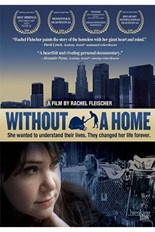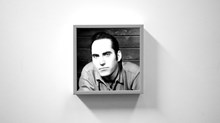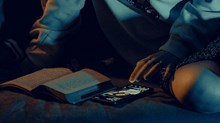The tagline to the new documentary Without a Home says it all: "She wanted to understand their lives. They changed her life forever." The tagline might have also added that she – budding young filmmaker Rachel Fleischer – also played a role in changing some of their lives too, at least a few of the 90,000 homeless in Los Angeles.

As a little girl from a well-to-do show-biz family (her father, Charles Fleischer voiced the lead character in the movie Who Framed Roger Rabbit?), Rachel had a sensitive heart for the homeless. So when she grew up, she decided to buy a camera, go to Skid Row, and document their stories. And she found, as many documentarians do, that it was difficult to stay behind the camera and remain an objective observer. Watching Fleischer get to know these folks, and then wrestle with just how much she should (or shouldn't) get involved in their lives is part of this 74-minute film's draw. Any of us who have worked with homeless people have weighed those same things: How much should I get involved, and how do I help without enabling?
It's one thing to see Fleischer give one person a ride to a destination a few blocks away. It's another when one of her subjects asks for $50 to pay rent, or to spend the night at her house because he's out on the street. How will she respond? She wants to do the right thing, but doesn't always instantly know what that is. Fortunately, as Fleischer immerses herself into these lives, she's also meeting professionals in ministries and organizations that have worked with homeless people for years, and she learns the ropes quickly – including the stark fact that some homeless folks might say they want help, but in the end, they really don't want to put forth the effort to change. Such stories are heartbreaking, and we see a few of them here. But we also see a few stories that are working their way toward a hopeful, redemptive ending.
Along the way, we meet heroin addicts who are high on the stuff, a guy who plays a homemade banjo on the street for a living, and a family that goes through eviction after eviction, just biding time till the dad can find steady work. And we watch Fleischer get involved in varying degrees, always asking herself, "Where do I draw the line?" It's easy to put yourself in her shoes and ask the same question.
Fleischer told The Jewish Journal that her faith definitely influenced the project and the way she went about it: "Tikkun olam, the idea of helping people and repairing the world, has always been, as far as I can remember, a big part of who I am. And one of the things that I really love about Judaism is that it's so much a part of our culture to help other people and give back. I think it's a very human idea, but I also think it's a very Jewish idea to want to give back."
At the end of the film, it sounds like she's got a pretty good grasp on the sociological and psychological complexities of homelessness:
"I wish it were as simple as putting a roof over everyone's head," Fleischer says in a voiceover. "But with or without a home, many of these people will continue to struggle. We have to be willing to examine the psychological wounds that brought so many of them to the streets in the first place, and then to respond accordingly. The feeling that initially drew me to document their lives ended up pulling me into their lives. And now I understand that as humans, we have a divine privilege to effect change, and when we do, the most extraordinary things happen."
Here's where you can buy the film, and here's the trailer:

Support Our Work
Subscribe to CT for less than $4.25/month


















